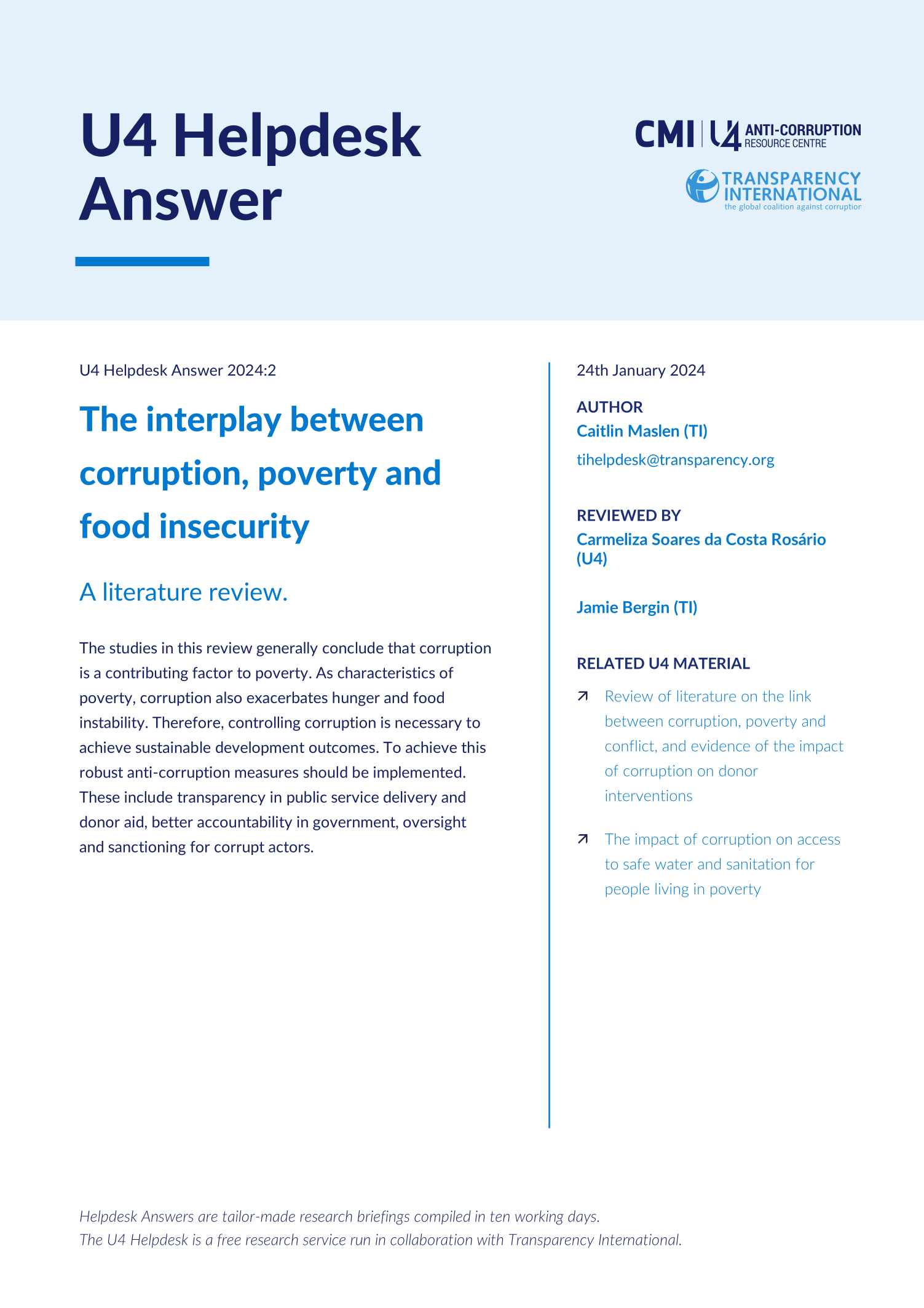Main points
- The literature generally points to a correlation between high levels of corruption and poverty and food insecurity, showing that corruption contributes to inequality and hunger worldwide.
- Corruption is found to reduce economic growth, through curtailing foreign direct investment and increasing the costs of public projects. This affects marginalised communities the most.
- Investigations in Somalia and Ethiopia have found that food aid was diverted by public officials and other corrupt actors and resold for their personal profit.
- Recommendations for international donors providing aid coalesce around transparency, due diligence and the use of ICT to increase the accountability of projects. Studies also recommend working with locally led anti-corruption actors to help identify specific risks.


